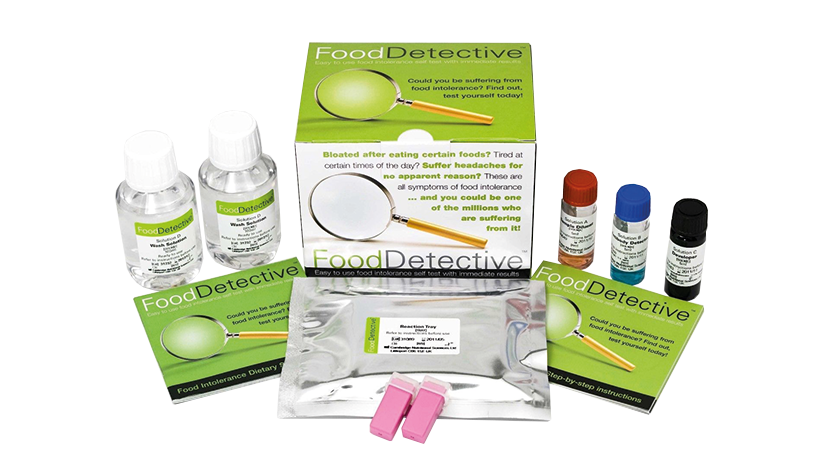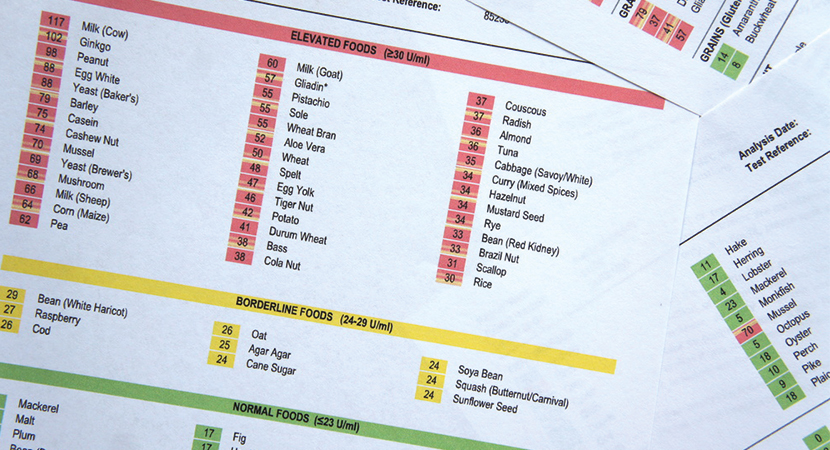Food Detective™ is a self test for food intolerance that you can use in the comfort of your own home. You don’t have to go to the doctor or wait weeks to receive results from a testing laboratory. Using Food Detective™ couldn’t be easier with informative step by step instructions to guide you through the simple process.
Food Detective™ tests for reactions to 59 commonly eaten foods. To conduct the test you take a small blood sample from a finger-prick, dilute it and add it to the Food Detective™ testing tray (containing small spots of food protein extracts).
In subsequent steps, the use of detector and developer solutions identify the presence of food antibodies through the appearance of one or more blue spots on the tray. Reference to the food layout plan, enclosed within the instructions, allows you to identify any foods to which you may have an intolerance.



